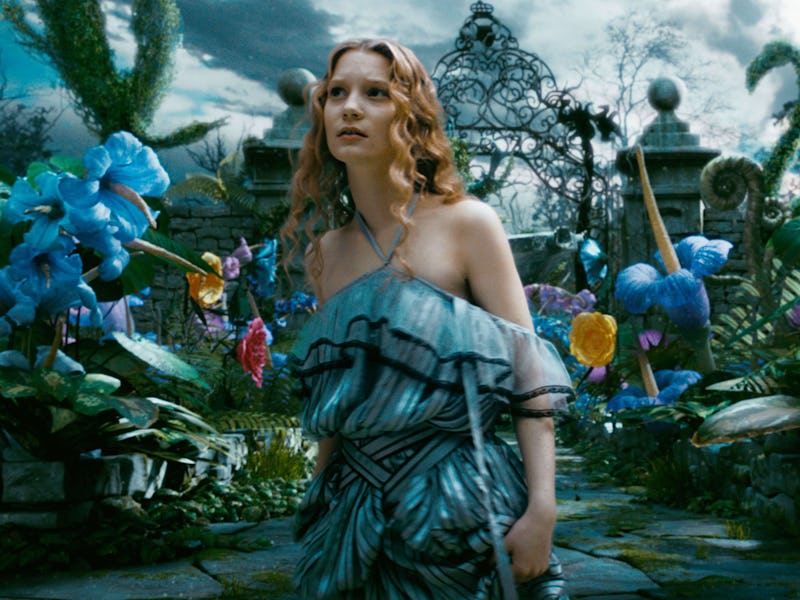How Tim Burton’s “Alice In Wonderland” Can Detect Psychosis
Assuming you aren’t already tripping balls while watching.

Tim Burton’s Alice In Wonderland remake currently holds a 53 on Metacritic. Whimsical, yes, but far from a masterpiece. Yet there’s something about the film you won’t find mentioned in the reviews — or reviews for any other movie listed on the site. And that’s how scientists are using it to detect signs of psychosis in mentally ill patients.
Leave it to the Finnish to try something like this.
At the European College of Neuropsychopharmacology (ECNP), researchers had patients watch the 2010 fantasy film while measurements of brain patterns were taken using a high-precision fMRI. The results illustrate that psychotic patients viewed and processed the film differently from healthy individuals. Brain activity was distinct between the groups, and the ECNP researchers think this method or a variation of it could be used to determine whether someone is likely to exhibit symptoms of psychosis later on in life.
Why Alice In Wonderland? The researchers needed patients to experience something that was rich in information and colorful stimuli. As anyone who’s ever watched the movie can attest, Burton did not hold back on any eccentric idea he had.
The researchers scanned the brains of 46 first-episode psychotic patients (meaning they had only experienced one psychotic episode before) and 32 healthy individuals. They found “significant” differences could be seen in the precuneus region of the brain, which is associated with memory, visuospatial awareness, self-awareness, and aspects of consciousness. They presented their findings at the 28th ECNP Conference in Amsterdam.
In a press release, ECNP President-Elect, Celso Arango said “The interesting question here is how patients with psychosis, even in their first episode, process information in a different way. What we would like to know is if patients with psychosis might see [the movie] as more or less relevant to their own life than would healthy controls. Alice in Wonderland is about a fantasy world. Would it be different with other types of movie?”
Indeed, it makes sense that psychotic patients would watch and interpret the film (or any Tim Burton movie for that matter) differently from others, though it’s still unclear how different this might be for a science fiction or horror movie, or something much less surreal, like a rom-com.
So, it turns out that DVD copy of the movie sitting on your shelf might not be a total waste. A fun experiment the next time your friends are around might be to sit down and re-watch the film — and pay close attention to whoever is making the strangest comments. (Hopefully it’s not already you.)